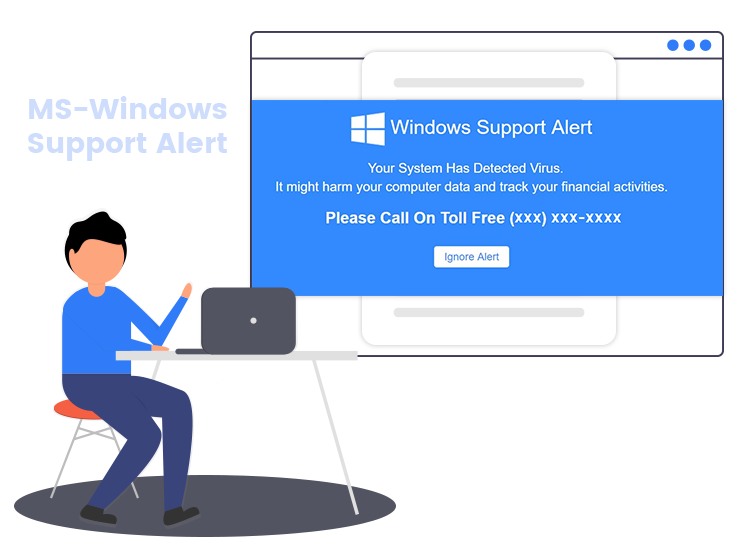
The “MS-Windows Support Alert” is hosted on various dubious webpages that rely on misleading pop-ups and fake messages to trick users into believing that their computers are infected with a virus and they are in dire need of technical support services.
If you feel like you’ve been the target of an “MS-Windows Support Alert” scam, keep on reading to know how to protect yourself against it.
“MS-Windows Support Alert” pop-up scam: Detailed Analysis
The “MS-Windows Support Alert” is a fake pop-up that Microsoft Windows users might encounter on their web browsers (e.g., Google Chrome, Mozilla Firefox, Safari, etc.) while surfing the Internet.
Scammers behind technical support scams like this one uses scare tactics to trick unsuspecting users into paying for technical support services to fix a nonexistent problem with their Windows devices.
In some cases, scammers attempt to access your system remotely and install malware, ransomware, or some other potentially unwanted application that can further steal your personal or financial information (e.g., passwords, credit card details, etc.), or damage your device. Such stolen data could be further misused by malicious hackers for purposes like identity theft, advertising, fraudulent online transactions, etc.
The main objective of the ‘MS-Windows Support Alert’ pop-up scam is to convince the potential victim to call a support phone number that supposedly belongs to a representative of Microsoft Company. However, the hotline number is meant to connect the user with an experienced fraudster who will offer useless or fake solutions for your problems and ask for money in the form of a one-time fee.
Note that these pop-ups are nothing more than a tech support scam, and you should not purchase anything from support numbers mentioned in such cautionary alerts.
How to protect against ‘MS-Windows Support Alert’ pop-up scam
Keep the following tips in mind to avoid being a victim of tech support crime.
- Authentic Microsoft error or warning alters from never include a technical support phone number.
- Do not respond to unsolicited email messages or phone calls that pretend to be coming from Microsoft. The company never asks consumers to share personal or financial details to fix/repair the computer.
- Download/install Windows apps or software only through the official Microsoft partner websites or directly from the Microsoft Store.
- Always keep your real-time antivirus protection enabled in Windows 10.

